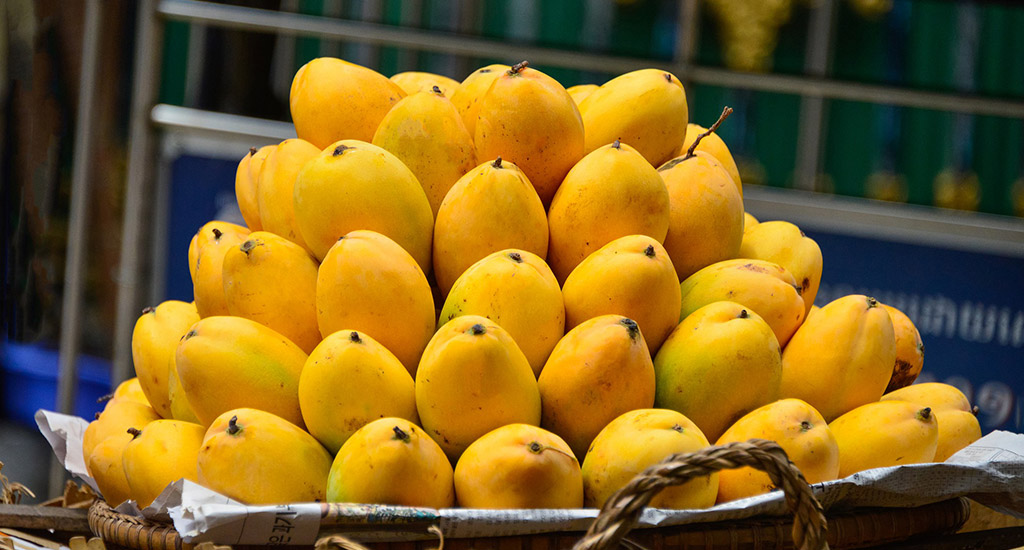
Mango cultivation not so juicy in Chittoor this year
Unseasonal heavy rainfall and winds are hurting the mango yields of Andhra Pradesh’s Chittoor farmers, who cater to local juice factories and export markets.

Unseasonal heavy rainfall and winds are hurting the mango yields of Andhra Pradesh’s Chittoor farmers, who cater to local juice factories and export markets.
One no longer sees the mangoes that filled vendors’ carts and supermarket shelves as the mango season is coming to an end.
Farmers in the Chittoor district of Andhra Pradesh are among many who should have benefitted from the mango season this year but did not.
N Suguna, a farmer from Kothur village, spent Rs 1 lakh on her 4-acre mango orchard last year. From putting mulch around the trees to spraying fertilisers, she followed all the rituals necessary for a good yield.
But against the expected minimum of 16 tonnes, her yield was a mere 3.5 tonnes. She sold the mangoes to a juice factory for Rs 60,000.
“I’ve never had such a poor yield,” said Suguna, who started mango cultivation six years ago.
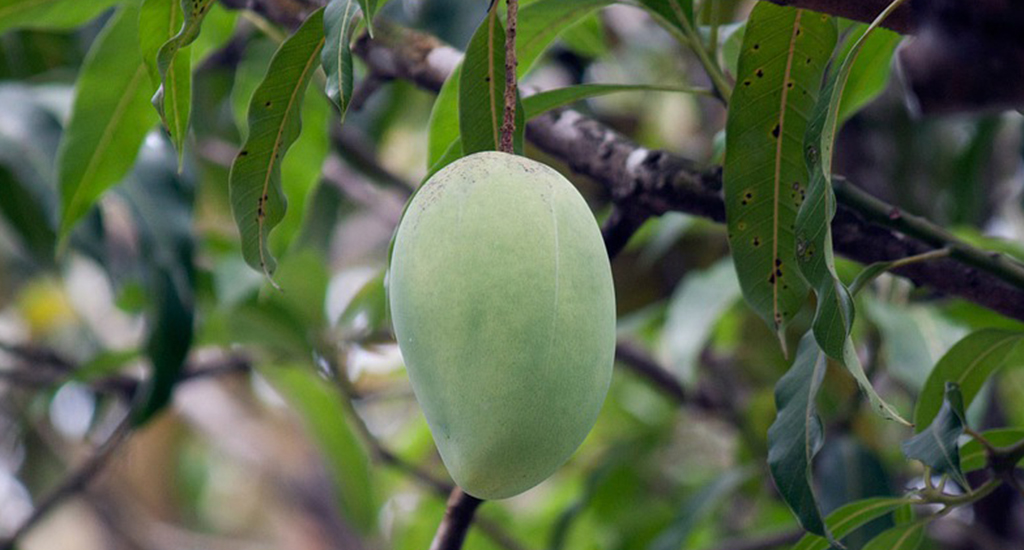
Many farmers across the district relate the same story, citing unseasonal rains as the main culprit.
Spells of unseasonal rainfall from November 2021 to May 2022 are resulting in a massive drop in yield.
“Chittoor, a rain shadow district in Rayalaseema region, usually doesn’t receive heavy rains from November to May. It’s this climate that suits mango cultivation,” said U Koteswara Rao, District Horticulture Officer.
“However, there’s been unseasonal rains the past three years,” he told Village Square. “Excess rains between November and January affects flowering.”
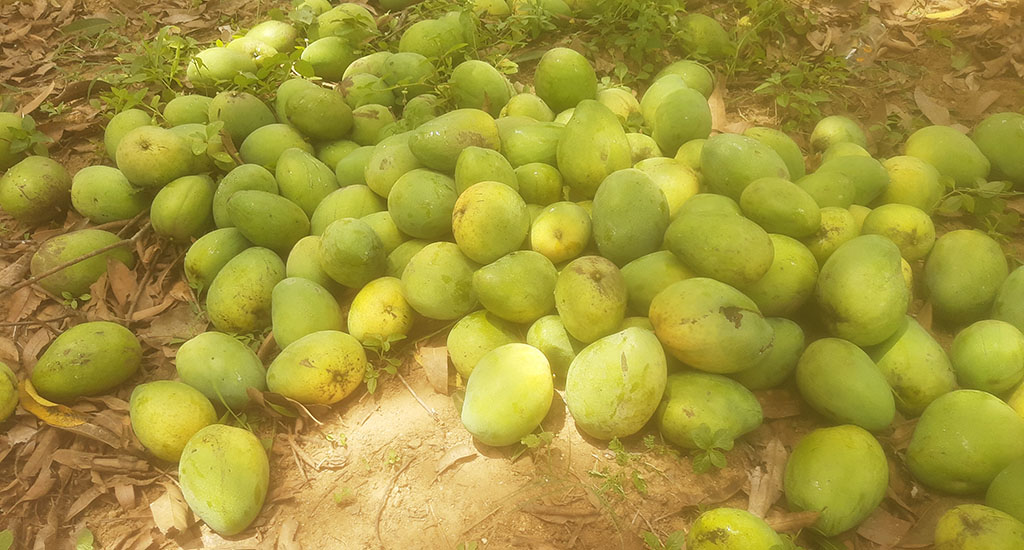
Farmer Rajgopal Reddy’s 2-acre orchard near a stream in Velkur village had stagnant water from the rains in May till July. (ALSO READ: Producers of sweet mangoes feel bitter about losses)
“The rains were so intense that the stream is overflowing even now. It’s never happened before,” said Reddy.
Suguna could not spray pesticides at the appropriate time because of ankle deep water in her farm.
In May this year massive rainfall and high speed winds caused by Cyclone Asani resulted in a large quantity of raw mangoes dropping down.
“At least 350 kilos of raw mangoes fell (too early from the trees) on our farm. We had to sell them for Rs 4 a kilo. It didn’t even cover the labour costs,” said Suguna. “I let about 100 kilos rot in the ground itself.”
According to a 2015 state revenue department order, mango farmers are eligible for a compensation of Rs 20,000 per hectare, provided the loss is 33% of their crop.
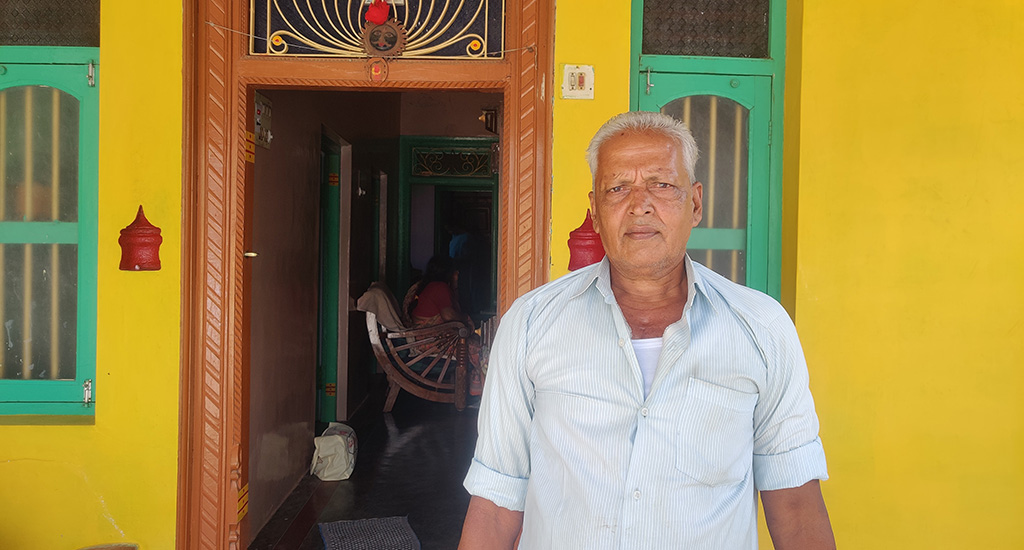
“As per the order, the trees should be completely uprooted, with the trunks broken,” explained Koteswara Rao. By that definition only 50 mango farmers in the district were eligible for compensation.
In Velkur village at least 15 farms near the stream had less than 5% of the normal yield. Nine out of 13 farmers who spoke to Village Square were not aware of the compensation, while the rest felt that it exists only in name.
I hope that the rains don’t curse us this year also
“I’m not aware of any compensation. I hope that the rains don’t curse us this year also,” said Reddy.
Farmers suggest a change in the present policy that compensates only when trees are uprooted.
“Not a lot of mango trees were uprooted. But small farmers lost everything to the rains. Shouldn’t they be compensated for the losses?” questions Nageswara Raju, a farmer activist.
Also, revenue department officials survey the villages only if the mandal headquarters record high winds and extreme rainfall.
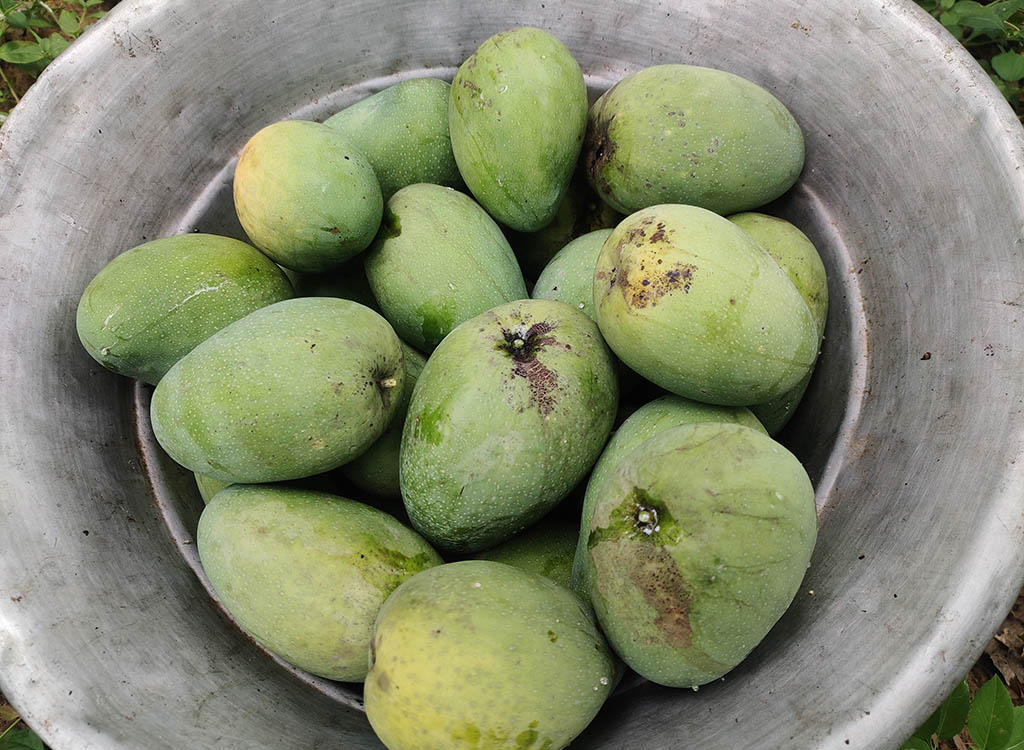
Even though Velkur received excess rainfall, the mandal headquarters didn’t. So Velkur farmers did not receive any compensation.
“The government should take into account the extreme weather events in a revenue village and not in a mandal,” said Raju. One mandal has around 15 revenue villages.
Production of 7-8 tonnes in an acre is perceived as a good yield. But this year the farmers could harvest just a tonne or even less in an acre.
The total yield was 3 lakh tonnes, compared to the usual 8 lakh tonnes, according to the district horticulture department.
“There’s been only 35% yield in about 1.25 lakh hectares of the undivided district (comprising Chittoor and Sri Balaji districts),” said Kothur Babu, secretary, Confederation of Indian Farmers Association.
Export statistics too are disappointing. Chittoor district that exports around 100 tonnes of mangoes every year exported only 52 tonnes this year.
Rao pins the decrease on climate disturbances.
“I expected at least 40 tonnes. But I harvested only 15 tonnes,” S Prabhakar Naidu, a farmer from Krishnapuram, told Village Square. “Last year I got 70 tonnes.”
Given the low yield and resultant short supply, farmers expected a good price.
Prabhakar Naidu sold his mangoes to a juice factory for Rs 18 per kilo, as did the other farmers. They find the price higher than in the wholesale mandis.
Nearly 20 juice factories in the district that extract pulp from the thothapuri (aka bengalura) variety for juice are the major buyers.
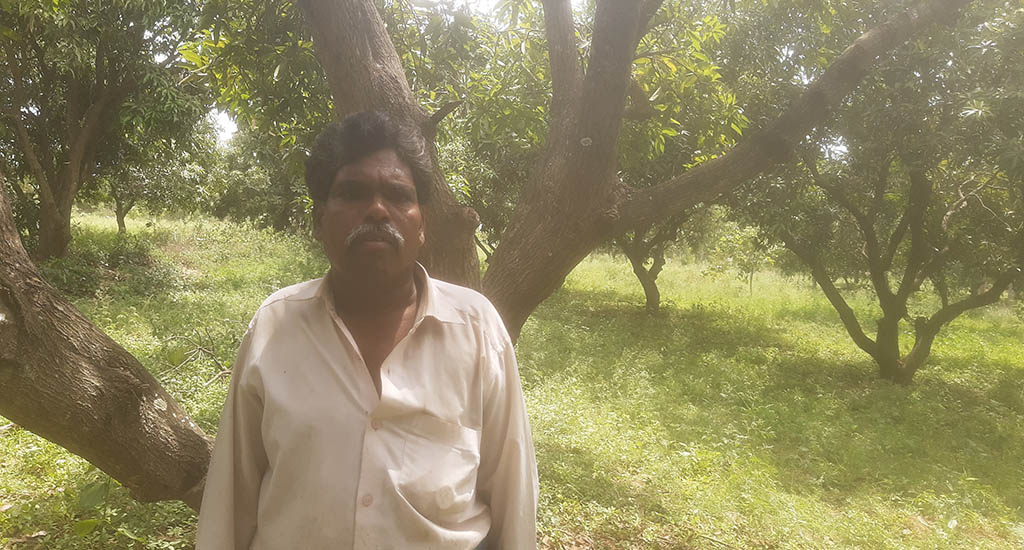
While auctions decide the mandi prices, it’s a group of factory owners who decide for the pulp factories.
“Factories decide the price without considering the farmers’ interests,” said Raju. He suggests that the state government constitute a committee to fix a minimum support price.
While farmers say the price has been an injustice to them, factory owners say that it is the best in all years, citing numbers.
“We decide the price considering traders’ views. Farmers have no say in the decision of price,” said a factory owner on condition of anonymity.
With prices lower than what they expected, many farmers suffered huge losses.
I didn’t even get what I spent
“I didn’t even get what I spent,” said Naidu, who had spent Rs 3 lakh on his 10-acre farm.
The profits they get during the season is what keeps the mango farmers going for the whole year.
But mango cultivation doesn’t provide many intercrop options, say agriculturalists.
“Cash crops such as sandalwood can be planted on the bunds. Crops such as groundnut can be planted as an intercrop when the trees are less than five-years-old,” said Raju.
Reeling deep in losses, a few of them are considering an alternative livelihood.
“Our debts will pile up if we rely only on growing mangoes. I’m rearing cows to pay for the losses from the mango farm,” said Suguna.
Pawan Kumar, a mango farmer from Kanipakam who also owns a poultry farm, says that it would be impossible to sustain his family without such integrated farming practices.
The lead image at the top of this page shows a basket full of mangoes (Photo by Public Domain Pictures, Pixabay)
Jithendra Prasad is a software engineer and a freelance writer.